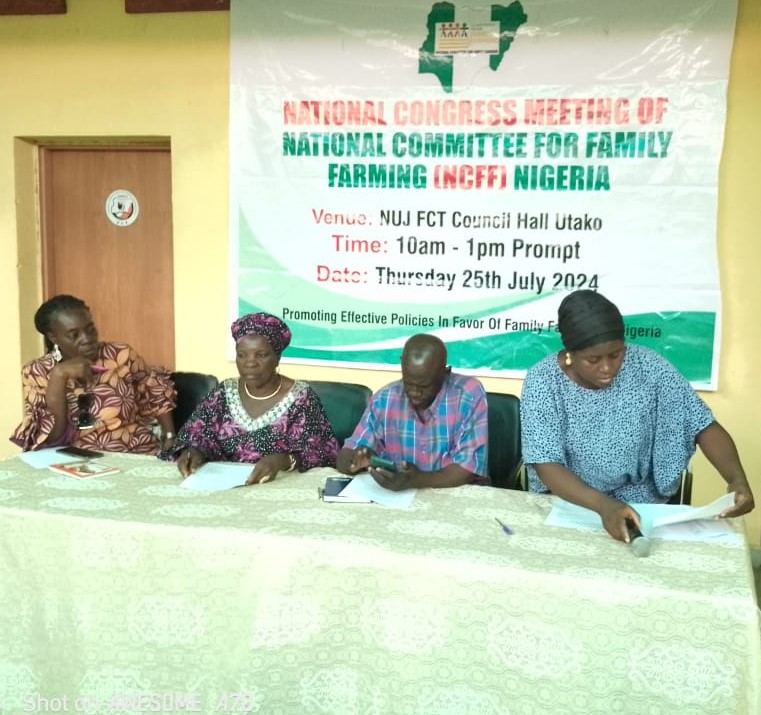The National Committee for Family Farming (NCFF) Nigeria has called for increased investment in family farming as a strategy to achieve food self-sufficiency and combat hunger in the country.
Speaking in Abuja on Thursday at the NCFF National Congress themed “Advancing Sustainable Agriculture, Food and Nutrition Security through Family Farming for a Renewed Hope Agenda for Nigeria,” NCFF Nigeria National Coordinator Mr. Raymond Enoch emphasized the importance of family farming in achieving these goals.
Enoch highlighted the role of family farming in promoting sustainable agriculture and food security.
He described family farming as agricultural activities managed and operated by a family, primarily utilizing family labor, which integrates economic, environmental, social, and cultural functions for food production and consumption.
Enoch called on stakeholders and Nigerians to support the initiative, noting that the meeting aimed to foster a national dialogue on the United Nations Decade for Family Farming (UNDFF 2019-2028).
This initiative, endorsed by the United Nations General Assembly, focuses on seven key pillars: creating supportive policy environments, youth and generational sustainability, gender equity and women’s leadership, strengthening family farmers’ organizations, improving socio-economic inclusion and resilience, promoting sustainable and climate-resilient farming, and enhancing the multidimensionality of family farming.
He outlined the UNDFF Global Action Plan (GAP), which aims to develop 100 National Action Plans (NAPs) on family farming, alongside five regional and seven sub-regional action plans. These plans are intended to provide a framework for supporting family farming at the national, regional, and sub-regional levels, aligning with national priorities in agriculture, nutrition, environment, and health.
Enoch stated, “Our theme, ‘Advancing Sustainable Agriculture, Food and Nutrition Security through Family Farming for a Renewed Hope Agenda for Nigeria,’ reflects our belief that a coherent National Action Plan will enhance food security and support the current government’s agricultural agenda.”
To this end, NCFF Nigeria has signed an MOU with the Federal Ministry of Agriculture and Food Security and engaged with various strategic partners, including the UN Food and Agriculture Organization (FAO) and the International Fund for Agricultural Development (IFAD). These efforts aim to develop Nigeria’s National Action Plan on family farming.
Enoch concluded by inviting stakeholders, private sector participants, farmers’ organizations, and youth to collaborate with NCFF Nigeria in advancing sustainable agricultural practices through family farming initiatives.



